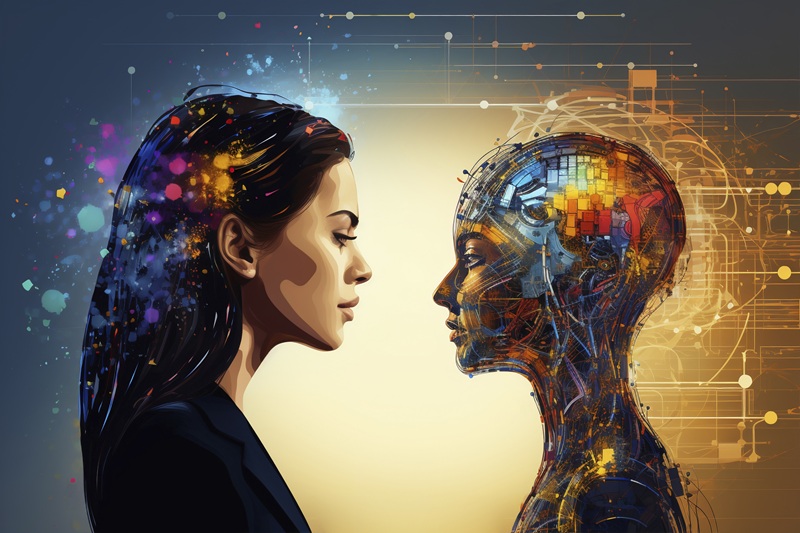The ethics of AI companions: where do we draw the line?

In an era where technology is deeply entwined with daily life, AI companions have emerged as intriguing entities that challenge our understanding of relationships and ethics. These digital allies inhabit smart devices and apps, offering support and companionship to humans navigating their complex worlds. Yet, as society delves into this profound frontier, ethical concerns around these AI relationships come to the forefront. By examining aspects like emotional bonds, privacy issues, and technological benefits, it becomes apparent how intricate the ethics of AI companions truly are.
Understanding AI companions: more than just algorithms
AI companions often manifest as chatbots or digital assistants capable of natural conversations similar to human-like interactions. They possess the ability to learn and predict user preferences, offering tailored responses designed for continual engagement. While their presence in homes or pockets can offer comfort, it's crucial to question how thoroughly these systems align with human values.
One might argue that AI companions blur the lines between machine efficiency and genuine emotional connection. Are these AI friends merely responding from programmed scripts? Or do they simulate understanding and empathy that inspire authentic connections? These questions spark discussions about the moral boundaries that define a socially acceptable human-AI interaction. To explore more about creating virtual relationships, visit https://www.kupid.ai/create-ai-girlfriend.
Moral concerns in developing emotional bonds
A key concern surrounds the potential for individuals to form emotional bonds with AI companions. Though initially charming, such attachments may risk users mistaking virtual responses for genuine human emotion. This confusion holds considerable social implications, leading to possible emotional dependence on machines rather than nurturing interpersonal skills among fellow humans.
Moreover, as AI increasingly integrates into mental health practices, the autonomy-control paradox arises. Although AI-powered applications might aid in managing symptoms or providing emotional insights, there's always danger that reliance on these tools limits personal growth. An over-dependence on AI solutions could dampen one’s autonomy in handling emotions naturally—a delicate line that must be thoughtfully navigated.
Ethical implications for privacy and data security
Privacy and data security loom large when assessing the ethics of AI companions. In exchange for personalized experiences, these AIs collect massive amounts of information about their users including habits, preferences, and even intimate details.
This raises troubling questions surrounding consent and data usage. How much should AI systems know about their owners? When entrusted with sensitive data, are there sufficient safeguards preventing unauthorized access or exploitation—potential consequences affecting one’s privacy at risk within AI-guided interactions?
The autonomy-control paradox in human-AI interaction
An alarming aspect is the autonomy-control paradox faced by individuals engaged intimately with AI companions. On one hand, people gain newfound capabilities benefiting personal routines through these advanced technologies; conversely, there remains the threat of losing freedom resulting from excessive reliance on artificial guidance instead of trusting oneself in independent decision-making processes.
In maintaining ethical agency amidst code-driven advisors, critical awareness becomes paramount in moral dialogues recognizing distinctions between empowering versus limiting user experiences. Navigating this spectrum involves honest self-examination regarding the levels of surrender necessary to sustain relationships grounded in authenticity without neglecting internal mechanisms responsible for underlying capacities that shape unique identities built entirely on one's own accord apart from pre-defined algorithms and mechanical reasoning frameworks.
Navigating bias and stereotyping in AI algorithms
Another layer of ethical concern resides within biases and stereotypes ingrained in AI programming. Despite strides toward equal representation throughout tech development teams striving to eradicate all forms of discriminatory elements, intrinsic algorithmic biases derive fundamentally skewed assumptions. These may unintentionally perpetuate societal inequities, reflecting entrenched disparities originating outside computational realms yet extending their influence.
Addressing these challenges demands a comprehensive approach, embracing inclusion and diversity as central themes. This represents an urgent pause allowing consideration to mitigate undue normative biases while safeguarding the ethical grounding essential for advancing AI technologies. Navigating the complexities of context and institutional transformations becomes vital, ensuring a common good unlocked across globally interconnected communities, where equitable standards protect individual liberties and uphold justice in a flourishing society.








